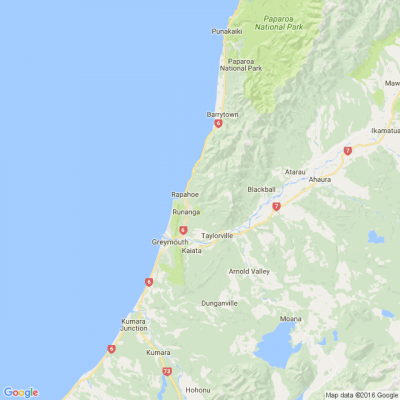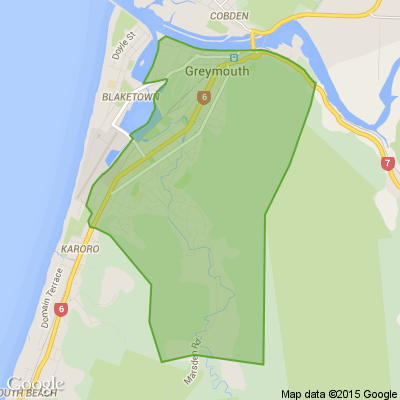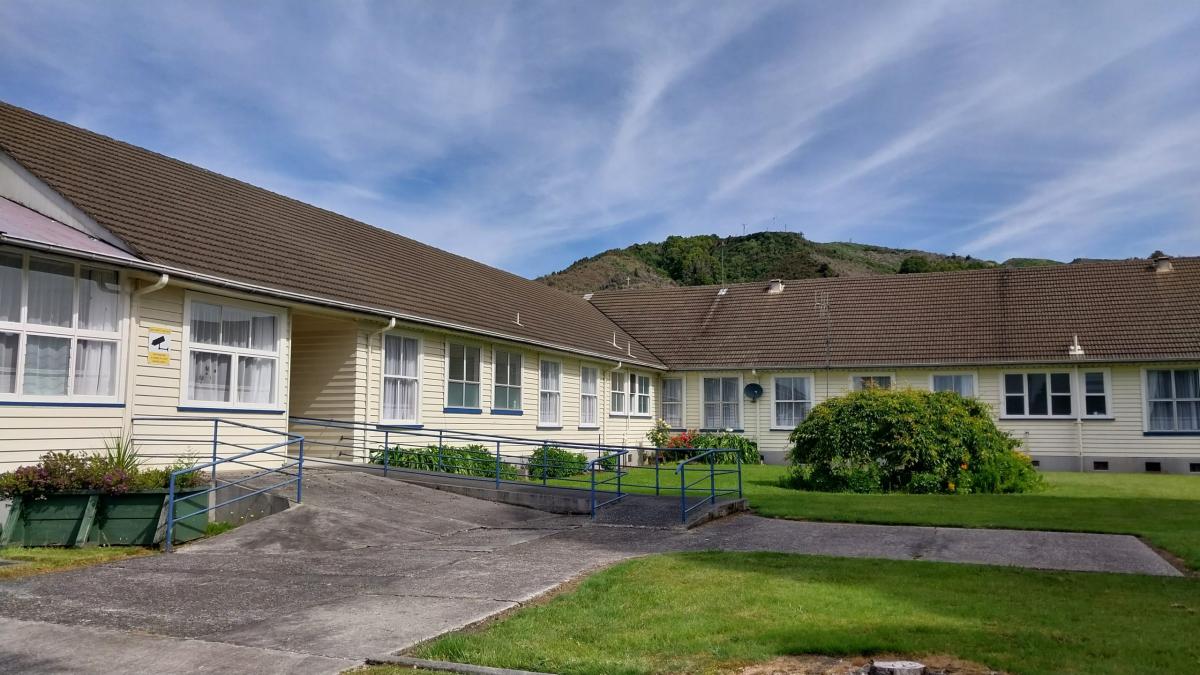
Know what’s happening
Access the private noticeboard for verified neighbours near you. Keep informed about any suspicious activity, send urgent updates to your neighbours when required and discuss emergency planning.
Get to know your neighbours
Browse the directory and start getting to know your neighbours. Don’t want to post to the whole neighbourhood? Send a private message.
Buy, sell and give away
Want to declutter your garage? Buy some used household items? Give away some garden stuff? Become a verified neighbour to browse and post items for sale. Trading is simple when everyone lives nearby.



Thank you for using Neighbourly
You may receive an email confirmation for any offer you selected. The associated companies will contact you directly to activate your requests.
The Team Reporter from NZ Farmer - North Island
Hello everyone, have you read your copy of NZFarmer?
NZFarmer has moved to isuue and all editions will be available there each month including both North and South Island editions. So head over there and follow us on our rural journey.
Sonita
Ernest Rutherford Retirement Village
Ryman Healthcare is pleased to announce it’s been awarded the Wellbeing Tick, a significant milestone marking the company as the first healthcare organisation in New Zealand and Australia to receive this accreditation.
The Wellbeing Tick is a workplace accreditation programme that recognises … View moreRyman Healthcare is pleased to announce it’s been awarded the Wellbeing Tick, a significant milestone marking the company as the first healthcare organisation in New Zealand and Australia to receive this accreditation.
The Wellbeing Tick is a workplace accreditation programme that recognises organisations that commit to the wellbeing of their people and are ready to make systemic changes to the way they operate.
The programme is based on an award-winning and globally researched framework, aiming to set the standard for workplace wellbeing practices in New Zealand and Australia.
Click to read the full story.

The Team from NZ Compare
Welcome to the Year of the Dragon - the symbol of power!
WIN 1 of 3 $50 gift cards in our Lunar New Year contest:
Simply share which month does your household's power bill PEAK and why to WIN! CLICK below to enter!
Let NZ Compare power up your year!
Entry ends on 12/2.

The Team Reporter from NZ Farmer - North Island
Hello everyone hope you are doing great. The January issue of NZFarmer is now out so make sure you grab your copy today. You can also sign up to our fortnightly newsletter: www.stuff.co.nz...
Hope you enjoy reading it.
Sonita
Nicole Mathewson Reporter from The Press
By local democracy reporter Brendon McMahon:
A proposal to introduce blanket 30kph speed restrictions in West Coast villages like Blackball and Moana will be put to the public for their views.
The West Coast Regional Transport Committee has decided to consult on a speed management plan for … View moreBy local democracy reporter Brendon McMahon:
A proposal to introduce blanket 30kph speed restrictions in West Coast villages like Blackball and Moana will be put to the public for their views.
The West Coast Regional Transport Committee has decided to consult on a speed management plan for local roads and school zones in the region, despite a shift in national road safety priorities by the Government.
However the committee decision did come with some lively debate.
Committee chairperson Peter Ewen noted the implications of the change of Government direction were still emerging.
"We're in a state of transition," Ewen said.
In December, Transport Minister Simeon Brown issued a directive to Waka Kotahi and councils around the country to cease blanket speed limit reductions.
West Coast Regional Council acting planning team manager Lillie Sadler said speed revisions for local district council roads and school speed zones were still proposed, excluding the state highway network administered by the NZ Transport Agency.
"Once we've got feedback from the public, that can inform the path forward," she said.
Consultant Matthew Noon said the region's three district road authorities supported a regional speed management plan as the way to go, "not withstanding the changes".
The draft focused on local roads, with a consistent approach across the region, he said.
West Coast Regional Council RTC representative Peter Haddock said the draft had been "a requirement" when formulated but the new Government direction meant they should wait before going forward with it.
"I believe the balance of the speed management plans for other roads should be put on hold before Government comes up with their full policy on it."
Haddock said some of the proposed permanent 30kph zones for Blackball and Moana were bound to be "contentious" particularly where 'variable' speed settings could be more appropriate.
Moana has busy holiday and weekend traffic but it was a town largely "with no-one to be seen" and residents had sought variable speed zones for the busy periods, he said.
Imposing a 30kph zone on the main road into Blackball, for over 1km before reaching the busiest part of the village, was "quite slow".
On the other hand most of the speed zones proposed around West Coast schools "are really good".
Greymouth mayor and RTC representative Tania Gibson said her council was "shocked and horrified" by the report proposing speed limit changes.
"It really came out of the blue for our council - speed limits dropping to 30kph nearly everywhere. I'm pleased to see it's come back in this form and that they've actually listened," Gibson said of the draft.
However, she foresaw "pushback" and Blackball tended to be "very vocal".
Gibson said her chief concern was how the public would be consulted; she wanted the draft to go back to her council first before going to the public.
Grey District Council acting transport manager Paddy Blanchfield said the draft Moana 30kph speed zone reflected community feedback to cover the whole village with the proposed zone.
"That was a request from the community, and that was something they were comfortable with. We haven't had a lot of kickback - it was more of a request."
Westland District Council RTC representative councillor Riley Burden said his council had also been shocked at the 30kph speed zones.
However, he noted two areas not in the draft which ordinarily had a low speed zone: Grimmond Ave in Ross through the Ross Domain, and the waterfront at Lake Kaniere.
* LDR is local authority journalism co-funded by RNZ and NZ On Air.
Nicole Mathewson Reporter from The Press
By local democracy reporter Brendon McMahon:
Family baches on West Coast conservation land will be able to remain - for now - after fears they would be pushed out.
The win for the owners, who have in some cases owned the baches for generations, follows negotiations with the Department of … View moreBy local democracy reporter Brendon McMahon:
Family baches on West Coast conservation land will be able to remain - for now - after fears they would be pushed out.
The win for the owners, who have in some cases owned the baches for generations, follows negotiations with the Department of Conservation (DOC).
In early 2023, the ongoing use of family baches on conservation land was deemed "a privilege, not a right" by the department.
The comment was made after fears were raised about the future tenure of West Coast baches on conservation land at a West Coast Conservation Board meeting.
Poerua River bach owner and Greymouth lawyer Colin Smith said on January 10 "a significant group" of West Coast bach owners, who mobilised in 2023, had reached a solution with the department.
It meant the concessions for bach owners would continue as they were, pending a review of the West Coast Conservation Management Strategy (CMS) in the next year.
"It's been a successful outcome for bach owners but it's only the first step in an ongoing process," Smith said.
The dialogue with DoC had been amicable and "successful", he said.
"It was more an issue of interpretation … We consider the submissions made on our behalf by our barrister helped clarify the relevant policies.
"We look forward to continue to working with the DoC in terms of this matter."
At a West Coast Conservation Board meeting in February, board members questioned a change by the department to the tenure of traditional family-owned baches, particularly in South Westland.
DOC Western South Island operations director Mark Davies denied undue pressure was being placed on bach owners.
However, he said a draft proposal "had been shared" with those affected as concessions were due for renewal.
Davies reiterated concessions for baches on conservation land was "a privilege, not a right".
At the time, Ngāi Tahu board representative and Harihari farmer Rob Wilson said the department should take a conciliatory approach to bach owners "instead of bullying", after agitated bach owners approached him.
Concerns included owners having to show occupancy for 100 days a year, and baches being made available to members of the public in the future under the new concession terms.
Smith estimated about 60 baches across the region are potentially affected going forward.
Many are on pockets of stewardship land or other historic reserve land handed over when DOC was formed in 1987 out of the former NZ Forest Service.
Typically the baches are in the lower reaches of rivers or streams near the coast and used seasonally for hunting or whitebaiting.
Smith said the issue was also a national one as it affected any holder of a concession for a bach on conservation land.
Smith said the West Coast group of bach owners foresaw a good working relationship with DOC going forward to ensure the traditional basis of tenure could continue.
"This is not an adversorial process … this is a case of trying to work with the DoC to find a resolution.
"We're not here to attack the department. We want to, and look forward, to working with the department."
As a result, the bach concession terms would remain the same for the foreseeable future.
"We have a review of the CMS coming up and we envisage we will need to ensure that the current terms relating to baches on conservation land under the current CMS continue under any new CMS document."
Davies said on January 15 "the reconsideration process" for three baches on public conservation land - one at the Waita River, one up the Arawhata River and the other at Kwitchatown - was completed in July 2023.
The department had relicensed the baches for a term of 10 years, he said.
Davies did not comment further on the broader tenure issue for other bach owners.
Local Democracy Reporting is local body journalism co-funded by RNZ and NZ On Air.
For only $15 a ticket, you could be in to win this brand-new, fully furnished Jennian home in Pegasus, Christchurch, worth nearly $1 million.
Featuring three bedrooms, two bathrooms and an open plan kitchen, living and dining area, this home is waiting to be lived in and loved by its new … View moreFor only $15 a ticket, you could be in to win this brand-new, fully furnished Jennian home in Pegasus, Christchurch, worth nearly $1 million.
Featuring three bedrooms, two bathrooms and an open plan kitchen, living and dining area, this home is waiting to be lived in and loved by its new owners.
Make this property your permanent residence, a holiday home, rent it or even sell it – it could be all yours! Get your tickets today.
Buy tickets now
Nicole Mathewson Reporter from The Press
By local democracy reporter Brendon McMahon:
The West Coast Regional Council rates mess has reared its head again with the council admitting an "administration error" caused some ratepayers to be charged twice through direct debit.
Council's Risk and Audit Committee chairperson… View moreBy local democracy reporter Brendon McMahon:
The West Coast Regional Council rates mess has reared its head again with the council admitting an "administration error" caused some ratepayers to be charged twice through direct debit.
Council's Risk and Audit Committee chairperson Frank Dooley said front line staff have been wearing the outcome of a poor system, which reflected years of under investment because of a fear of "putting the rates up".
The latest blunder comes after council overcharged some West Coast ratepayers last year, forcing officials to reissue invoices in December.
Invoices for 2023-24, from December 12, should show exactly what people owed for their second installment, Dooley said.
Ratepayers have been contacting the Local Democracy Reporting and posting to social media after their rates direct debits were double dipped - and sometimes for variable amounts.
"Incomprehensible" invoices, some with charges dated as 2022-23 instead of 2023-24, have also been pointed out.
Council chief executive Darryl Lew said the direct debit mistake reflected ongoing issues with council's rates accounting system.
"We acknowledge the administration error that resulted in duplicate payments, those individuals affected have been reimbursed within 24 hours," he said.
Council had also responded "to a small number" of ratepayers concerned at their accounts, and having "difficulty understanding the invoices".
"We appreciate this is a complex matter for many ratepayers and rates direct debits are calculated on an individual basis, taking into consideration many factors including rating district levies and the ratepayer's current account balances."
Lew said the direct debits have been recalculated to reflect the difference between the previous rates payments and the new calculation for the rating period.
"Those affected ratepayers will be notified in due course," he said.
In the first problem to arise, as the 2023-24 invoices arrived, ratepayers in special rating districts like Greymouth and at Harihari were shocked to find huge rates increases of up to 300%.
The final due date was January 20, after two previous payment extensions.
However, ratepayers were encouraged late last year to still pay their first incorrect installment, with the assurance this would be balanced out with the second installment.
Lew was also asked why the refreshed 2023-24 rates invoices sent out on December 12 still had 2022-23 quoted at the bottom.
Dooley, an accountant, said the new invoices sent out should have said 2023-24.
The invoice system problem reflected wider issues affecting council administration due to under investment, he said.
Dooley said they are waiting a final report from Price Waterhouse Cooper, commissioned by council late last year, to investigate the rates system.
"We need to improve that system but without seeing the PWC report, I can't make further comment."
Council rates staff have been "inundated" over the issue.
"There was a system break down and that shouldn't have been the case. Councils need to make sure the systems are right.
"Why haven't we got an annual report? Exactly the same problem: we haven't invested in systems and we haven't invested in people," he said.
"The lack of investment over a number of years is coming back to bite us and we have got to change that."
Is the summer heat putting you off painting your house or a building in a darker colour? With Resene CoolColour you can enjoy a cooler finish when it's unbearably hot outside!
Planning to use a dark coloured paint or wood stain on your home?
Choose a Resene CoolColour finish that will… View moreIs the summer heat putting you off painting your house or a building in a darker colour? With Resene CoolColour you can enjoy a cooler finish when it's unbearably hot outside!
Planning to use a dark coloured paint or wood stain on your home?
Choose a Resene CoolColour finish that will help reflect more heat and keep your place cooler.
Available in a wide range of colours and products from your local Resene ColorShop.
Find out more

Nicole Mathewson Reporter from The Press
By local democracy reporter Brendon McMahon:
A community trust to take over the closed aged-care facilities at Reefton is off the cards for now.
But the Reefton Health Action Group remains focused on pushing for the reopening of the aged-care wing of the town's former hospital.
The … View moreBy local democracy reporter Brendon McMahon:
A community trust to take over the closed aged-care facilities at Reefton is off the cards for now.
But the Reefton Health Action Group remains focused on pushing for the reopening of the aged-care wing of the town's former hospital.
The idea was floated initially at a meeting called by the Reefton Health Action Group (RAG) in December over the closure of Ziman House aged-care wing of the former Reefton Hospital - renamed Reefton Health in March 2022.
The former West Coast DHB closed the aged-care wing in March 2022 explaining it was a Covid management measure - although it later emerged Ziman had also been operating without the requisite number of registered nurses on site.
Ziman is yet to reopen with some staff in Reefton remaining on full pay.
The facility has been renovated and maintained ahead of the promised reopening.
Health NZ announced last month it intended to operate a day-based activity programme at the site from January for people being cared for at home, in lieu of Ziman not being able to reopen yet.
However, Health NZ confirmed this week the day programme has not yet started.
RAG spokesperson Helen Bollinger said a trust model was not the group's first preference for the reopening of Ziman.
"Most of the people are not keen. We would like the hospital people (Health NZ) to do their job and administer what was before," Bollinger said.
The trust idea had initially been explored to gain some traction with Health NZ, "thinking it was one way of speeding things up," she said.
"We wouldn't dismiss it altogether, but it's a huge undertaking."
The idea of a trust only applied to Ziman, not the wider primary care services such as the GP provided from the same site by Health NZ.
Bollinger said the RAG December 8 meeting heard from representatives of Westport's O'Conor Home Trust on the complexities of running aged care services under a trust model.
This included the challenge in recruiting registered nurses, which Te Whatu Ora repeated in December when explaining why Ziman House remained closed.
Bollinger said from what they heard standing up a similar trust in Reefton would be a huge undertaking.
"It's fraught."
Meanwhile, a RAG meeting this week was to discuss the next move in pushing for Ziman House to reopen, she said.
She said the agenda may include the existing Inangahua Wheelchair Van in the town to see how it might be supported by RAG under a new model.
"It could be possibly used to pick up people to bring people into this so-called activity programme."
However, the group was holding onto Ziman being reopened fully.
"We don't want an activity thing anyway; we want the hospital."
In December, Health NZ West Coast associate director of operations Phil Wheble said there were no plans to cede its Reefton medical centre to a private provider or trust.
However, a Health NZ spokesperson said this week they were open to handing over Ziman to the community.
"We are happy to engage with RHAG or any other interested party regarding the establishment of a trust to run the aged care facility if this is what is being proposed," Health NZ said.
Regarding the promised day activity programme at Ziman, Wheble said in a statement they were still working on it.
"We are working with our staff and union partners and once the workforce is confirmed we will be able to provide a new start date for the day activity programme," he said on January 24.

Nicole Mathewson Reporter from The Press
By local democracy reporter Brendan McMahon:
A powerful storm has accelerated the radical shift of the Waiho (Waiau) River at Franz Josef, moving 95% of the river's main channel to the Tatare Stream north of the tourist hotspot.
And with further bad weather forecast - up to 200mm of rain… View moreBy local democracy reporter Brendan McMahon:
A powerful storm has accelerated the radical shift of the Waiho (Waiau) River at Franz Josef, moving 95% of the river's main channel to the Tatare Stream north of the tourist hotspot.
And with further bad weather forecast - up to 200mm of rain is expected this weekend - West Coast Civil Defence has swung into action over the river change and the potential risk.
West Coast Regional Council staff and river engineers visited the area on Wednesday to assess the river following last weekend's state of emergency amid heavy rain warnings.
The river radically changing course is serious, but with "no immediate risk" to life, council chief executive Darryl Lew said.
"I'm awaiting [Civil Defence] advice but clearly we will go and talk to the land owners down that Tatare Stream," Lew said on Thursday.
The amount of rain forecast this weekend was a concern for the river, so Civil Defence is gearing up, he said.
The rapid build up of the Waiho River-bed and the risk of its increasingly changing course posing a high risk to residents and visitors to the tourist hotspot of Franz Josef on the north bank has been a long standing worry for West Coast authorities.
In mid-2023, the emerging issue of the river bed shifting north and dropping into the Tatare Stream bed forced the council to abandon plans to build a series of flood bunds on that side of the Waiho River.
The bunds were planned as a wider protection scheme on the north bank to secure the future of Franz Josef for the next 15 years.
The heavily avulsing river bed also spurred council to revise and relaunch a 10-year strategy to manage the river, which was released to the community in October.
It primarily advocates removing the stop banks on the south side of the Waiho, which would allow the riverbed to fan out naturally over predominantly rural land to overcome the threat to Franz Josef.
Lew said the weather event last weekend had radically accelerated the Waiho avulsion, with 95% of the main channel of the Waiho now flowing via the Tatare Stream to the northwest.
At the same time, water was seeping in behind the Havill Wall on the Waiho north bank, near the Westland District Council wastewater treatment plant and ponds, about 1.5km from the main town.
Havill Wall was controversially built by the district council following the April 2016 flood which swamped the old Scenic Hotel site.
It has recently been upgraded by the regional council as part of the wider north bank flood protection scheme.
Lew said the on-the-ground inspection on January 24 was their first opportunity to view the area since the river receded from the heavy rain last weekend.
Heavy scouring and "bank attack" was evident on the banks of the usual Waiho River channel near Franz Josef and Waiho Flat, "but that is a secondary concern".
Lew said council engineers and members of the Waiho Technical Advisory Group - used by council last year - had been pressed into action.
The group would consider options in the coming days, including if moving the Waiho River back to its normal course was possible.
In the meantime, council expected to make a further statement on the situation tomorrow [Friday] afternoon, Lew said.
"This potential for the Waiho to avulse and flow into the Tatare Stream was signalled as a strong possibility in the Waiho River Strategy.
"The key issue for us is whether we can do some channel works to manipulate the Waiho River flow back into it's main channel, or not."
Lew said the avulsion was below the district council sewage ponds.
"At the moment there is no direct threat to the ponds. However, at the moment there is considerable signs of seepage behind the Havill bank which protects the ponds."
Asked if that seepage was expected, Lew said council was seeking further geotechnical advice.
"There is no water entering the (sewage) ponds."
Lew said there was no immediate threat to State Highway 6, north of Franz Josef, as a result of the river shifting to the Tatare.
However, if the trend of the main channel of the Waiho into the Tatare was allowed to continue, "the implications are significant".
Ernest Rutherford Retirement Village
Craving a recipe that’s sure to impress? Indulge your sweet tooth with our Gooey Caramel Muffins - the latest addition to Ryman’s food menu.
Quick, easy, and oh-so-delicious! Grab your apron and prepare for caramel perfection with our step-by-step recipe.
Click read more for the full … View moreCraving a recipe that’s sure to impress? Indulge your sweet tooth with our Gooey Caramel Muffins - the latest addition to Ryman’s food menu.
Quick, easy, and oh-so-delicious! Grab your apron and prepare for caramel perfection with our step-by-step recipe.
Click read more for the full recipe and video.

The Team from NZ Compare
Ready for a Kiwi summer road trip?
Explore our essential road trip gear for a memorable journey! Don't miss out on the must-haves to make your trip unforgettable :)

The Team from Ryman Healthcare
As New Zealand’s most popular retirement villages and Reader’s Digest most trusted brand, you probably didn’t need another reason to choose the Ryman lifestyle. So we’re giving you 15,000! For a limited time, if you sign up for one of our new home offers, you’ll get a $15,000 credit on … View moreAs New Zealand’s most popular retirement villages and Reader’s Digest most trusted brand, you probably didn’t need another reason to choose the Ryman lifestyle. So we’re giving you 15,000! For a limited time, if you sign up for one of our new home offers, you’ll get a $15,000 credit on settlement*. There’s truly never been a better time to choose Ryman.
*Terms and conditions apply
Find out more

The Team from
Hey animal lovers! Been thinking of adopting? Then we have some great news for you...
From Sat 27 Jan – Sun 4 Feb, SPCA offer half-price adoptions for all animals, all around the country!
SPCA Centres around New Zealand are currently full to the brim, so let’s get these deserving animals … View moreHey animal lovers! Been thinking of adopting? Then we have some great news for you...
From Sat 27 Jan – Sun 4 Feb, SPCA offer half-price adoptions for all animals, all around the country!
SPCA Centres around New Zealand are currently full to the brim, so let’s get these deserving animals into loving homes this summer.
Life is just better with animals – so why wouldn’t you? Head over to www.spca.nz... to find your new best friend.
 Loading…
Loading…
Are you sure? Deleting this message permanently removes it from the Neighbourly website.
 Loading…
Loading…
© Neighbourly 2026
